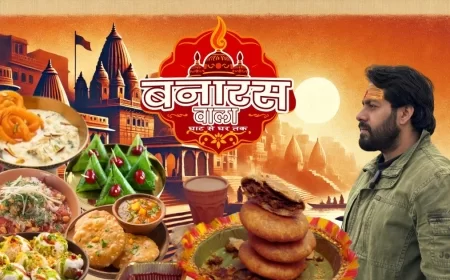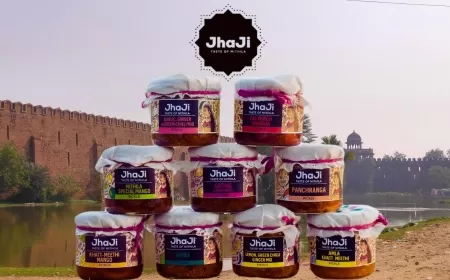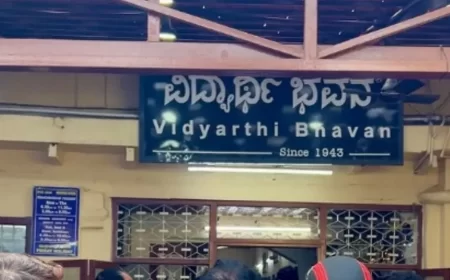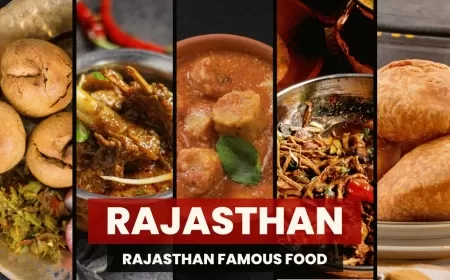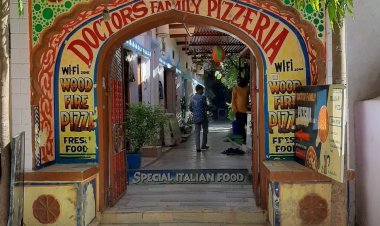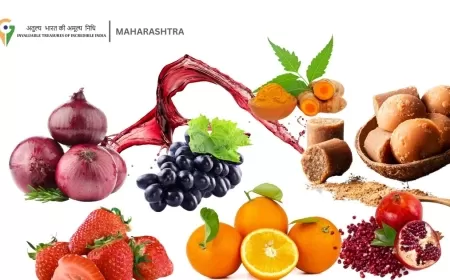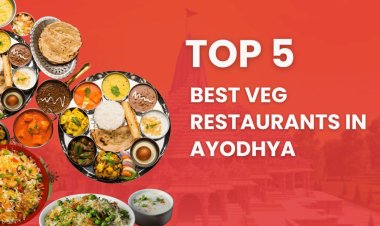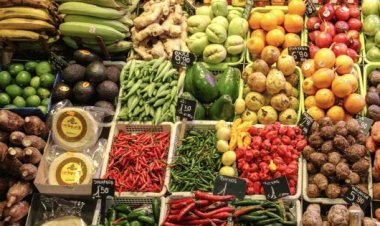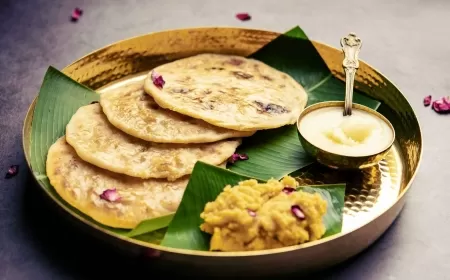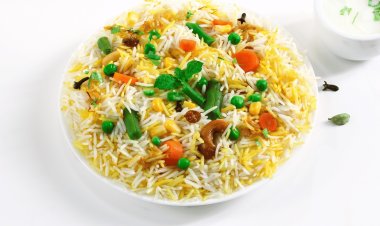Lucknow Nominated as India’s Official Entry for UNESCO’s Creative City of Gastronomy
Lucknow nominated for UNESCO Creative City of Gastronomy, showcasing its iconic Awadhi cuisine and rich culinary heritage on the global stage.

Lucknow, the cultural heart of Uttar Pradesh and the culinary pride of North India, is poised to gain global recognition for its legendary cuisine. The city has officially been nominated by the Government of India as the country’s contender for the prestigious title of UNESCO Creative City of Gastronomy under the UNESCO Creative Cities Network (UCCN).
This nomination places Lucknow on track to join an elite group of cities celebrated worldwide for their cultural and culinary excellence. The UNESCO Creative Cities Network, launched in 2004, spans seven creative fields, including music, literature, design, and gastronomy. If selected, Lucknow would become India's third city recognized for gastronomy, alongside Hyderabad and Varanasi.
A Royal Culinary Legacy in the Global Spotlight
Often referred to as the "City of Nawabs," Lucknow boasts a storied history of fine dining rooted in Awadhi traditions. The city’s culinary repertoire is a testament to centuries of refinement, with royal kitchens once serving as the birthplace of dishes that are now household names. From the legendary Tunday Kebabs to the delicately layered Awadhi Biryani, Lucknow’s cuisine balances bold flavors with nuanced cooking techniques.
This gastronomic bid is being spearheaded by the Ministry of Culture, Government of India, with strategic inputs from Mumbai-based heritage consultant Abha Narain Lambah. A comprehensive dossier detailing Lucknow’s food culture, history, and community-based culinary traditions is being finalized for submission to UNESCO by the end of June.
Lucknow’s Divisional Commissioner, Roshan Jacob, confirmed the city’s official nomination and stated that preparations are underway to welcome a potential site visit by UNESCO experts. “We are compiling in-depth documentation that reflects the city’s deep-rooted food culture, local engagement, and historical significance,” she told Hindustan Times.
What Sets Lucknow Apart?
While the city is revered for its slow-cooked, spice-rich non-vegetarian delicacies, its street food and vegetarian fare are equally captivating. From the melt-in-your-mouth Tunday and Kakori Kebabs to the tangy basket chaat and crispy khasta-kachauri, the variety is as wide as it is iconic. Sweets like motichur laddu, malai paan, and jalebi with rabri further reflect the richness of Lucknow’s sweet tooth.
Beyond individual dishes, what makes Lucknow’s cuisine unique is its enduring connection to tradition, craftsmanship, and community. Generations of chefs and halwais have preserved culinary secrets passed down from the Nawabi era. Today, these dishes are not just food—they are cultural artifacts.
Tourism and Global Recognition
Tourism figures reflect this culinary magnetism. Lucknow welcomes approximately 48 million visitors annually, with food tourism playing a significant role in driving those numbers. Major international events such as the G20 Summit and the UP Global Investors Summit have further elevated the city’s profile, introducing diplomats and dignitaries to its dining legacy.
The UP Tourism and Culture Departments are aggressively promoting this nomination, recognizing that international recognition could boost not only the hospitality and F&B sectors but also create new opportunities for culinary entrepreneurs and heritage conservation.
India’s Expanding Creative City Footprint
If selected, Lucknow would join a select group of Indian cities already in the UNESCO Creative Cities Network: Chennai (Music), Jaipur (Crafts & Folk Art), Mumbai (Film), Varanasi (Music), and Hyderabad (Gastronomy). Each city reflects a unique facet of India’s cultural richness, and Lucknow’s inclusion would further cement the nation’s global creative credentials.
With UNESCO’s final decision expected later this year, Lucknow’s culinary champions are hopeful. More than just a recognition, the Creative City tag could pave the way for international collaborations, culinary tourism initiatives, and policy support for preserving traditional foodways.
For a city where food is inseparable from identity, this recognition would be a fitting tribute to its timeless taste.
What's Your Reaction?
 Like
0
Like
0
 Dislike
0
Dislike
0
 Love
0
Love
0
 Funny
0
Funny
0
 Angry
0
Angry
0
 Sad
0
Sad
0
 Wow
0
Wow
0













